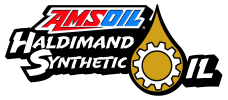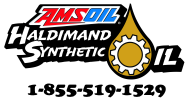
The Role of Additives in Motor Oil Performance
Most lubricating oils are formulated with chemical additives that enhance the beneficial properties of the base oil or make up for oil deficiencies. For passenger car motor oils, base oil makes up 70 to 80 percent of the final product; additives comprise the other 20 to 30 percent.
Additives
help lubricants withstand extreme operating environments. Even the best base oil cannot protect as well against the effects of heat, shearing forces, chemical and water dilution, corrosion and wear particles. In short, additives make good base oils better. They give good base oils the performance benefits consumers expect, such as multi-grade performance, extended drain intervals and extreme-pressure performance.
• Anti-Wear Agents chemically react to form a film barrier that prevents metal-to-metal contact and wear. To reduce friction and wear while helping prevent scoring or seizure.
• Antioxidants reduce the tendency for oil to react with oxygen and reduce sludge buildup.
• Dispersants help suspend and disperse contaminants in the oil to keep engine surfaces free of sludge and deposits. They fight the build-up of corrosive acids and are most efficient at controlling low-temperature deposits.
• Detergents Detergents neutralize varnish and sludge to help keep surfaces clean and deposit-free. They are most efficient at controlling high-temperature deposits.
• Extreme-Pressure Additives coat metal surfaces to help prevent close-contact components from seizing under extreme pressure. They are activated by high temperatures and high loads to react with the metal’s surface to form a sacrificial wear layer on components.
• Foam Inhibitors reduce the surface tension of air bubbles and causes them to collapse.
• Friction Modifiers can be used to give oil more ‘slippery’ characteristics. In motor oils, friction modifiers are used to increase the oil’s lubricity for the purpose of reducing friction and improving fuel economy.
• Pour-Point Depressants give high-viscosity oils good low-temperature properties. Pour-point depressant polymers inhibit the formation of crystals to minimize low-temperature viscosity increase. To deliver better wear protection at start-up.
• Seal-Swell Agents Their role is to help swell elastomeric seals to prevent leaks.
• Rust & Corrosion Inhibitors form a protective barrier over component surfaces to seal out water and contaminants. While most rust and corrosion inhibitors work by forming a physical barrier, some rust inhibitors function by neutralizing acids.
• Viscosity Index (VI) Improvers are long-chain polymers that help control the viscosity of multi-grade motor oils. They expand and contract as temperatures vary. High temperatures cause VI improvers to expand and reduce oil thinning; low temperatures cause VI improvers to contract and have little impact on oil viscosity. Basically, reduce the rate of viscosity change when temperatures rise or fall.
Like most commodities, motor oil additives are available in varying degrees of quality. AMSOIL uses only the best additives available to formulate AMSOIL synthetic lubricants.






 Canada
Canada United States
United States